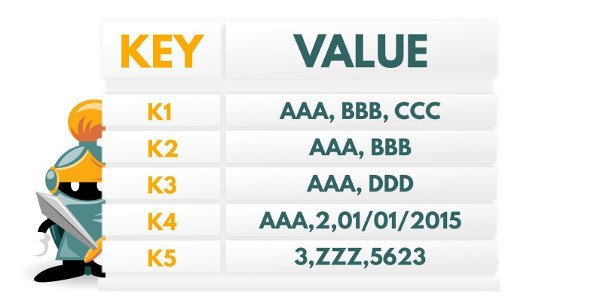
A new blockchain token has been created via Komodo’s assetchains. This cryptocurrency is called KeyValue (KV) and has a very specific function within and outside the Komodo Platform context.
The idea for the creation of KV stemmed from a slack conversation between two SuperNET team members, jl777 and ca333, in which the latter brought up the issue of those users who don't know how to validate the authenticity of the software they want to download and therefore have to simply trust that it is what it purports to be. As ca333 noted, this isn't an issue for tech-savvy users who can build/deploy on their own, but it is an issue for everyone-else and so we want to make sure people can trust us even without technical knowledge, and that is how the KV token was born.
KV is basically a decentralized blockchain-based version of a key-value database (It’s like a container to store data in, with a label). In the context of the validation of pre-built binaries, users can verify the the validity of the build on the blockchain. In this system, the key is the name of the software and its version number, while the value would be its hash. This allows the validation to be fully automated, without the need to trust third-parties or worry about hacked or forged webpages.
Key Value database illustration
SuperNet is the first to implement something like that. This is ultimate transparency,
non-tech users will never have to trust anybody when downloading a release binary file. -ca333
As so, a blockchain-based build/distribution system for the SuperNET will be developed. This system will be dubbed “KRN” (komodo release notary) and will allow superNET to push source codes.
In the system, the hashed values of the codes gets stored on the blockchain, allowing users to check if the codes are the same same as the ones being published on other platforms (github, sourceforge, and so on). After the code is pushed, the KRN instance builds the binaries and deploys them for the various platforms. Users will see the detailed output of the build procedure. Binaries are hashed again and final results (hash values of binaries) stored on the KV assetchain together with other information (version, build number, and so on).
This system presents multiple advantages over a traditional database. Since this KV assetchain is protected by the dPoW mechanism, records are immutable and cannot be forged. But that is not all! KV will also help in the implementation of the decentralized exchange (DEX) and it can be used by others for multiple applications in and outside the Komodo context; according to Grewal Satinder:
It can be a decentralized keybase.io like DAPP; it can be a decentralized Domains like namecoin; it can be a decentralized contact list for our Iguana Wallet.
The KV token was created to solve a problem we faced, and now its development path and future lies in the hands of our community. Anyone is welcome to join the team and start brainstorming what to do next with KV. If you are interested, join our Slack channel #kv and share your ideas.
Hi! I am a robot. I just upvoted you! I found similar content that readers might be interested in:
https://supernet.org/en/resources/articles/decentralized-storage-the-key-value-token
Downvoting a post can decrease pending rewards and make it less visible. Common reasons:
Submit
2 things:
Maybe you wrote it in the original place ? In which case you should mention it I guess..
Downvoting a post can decrease pending rewards and make it less visible. Common reasons:
Submit